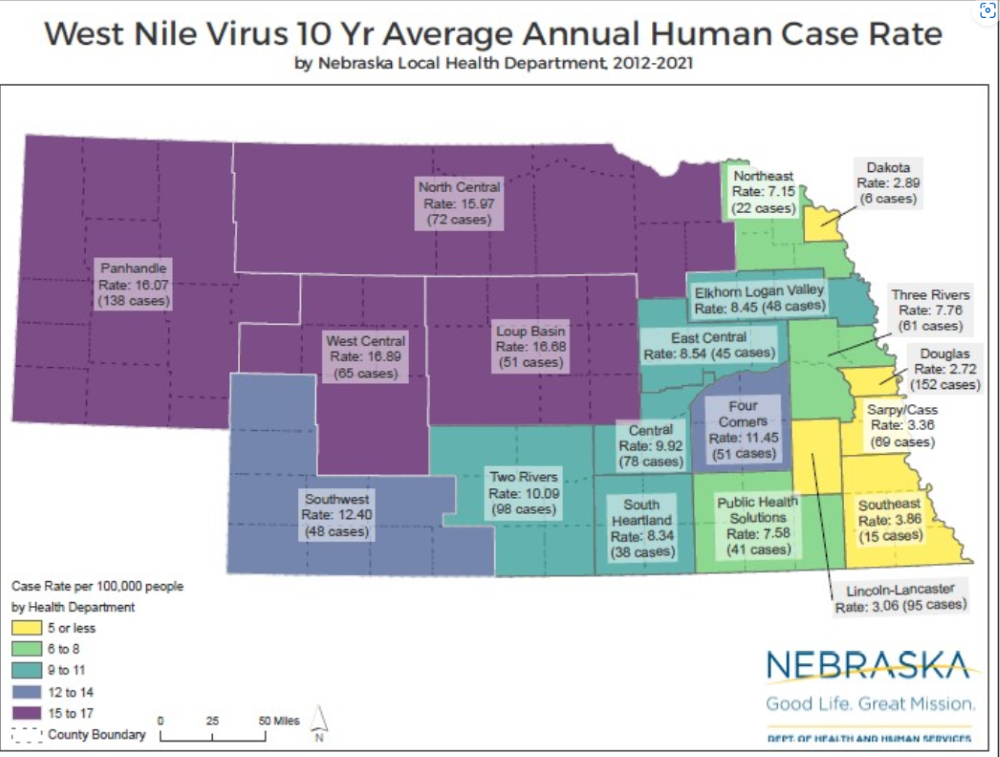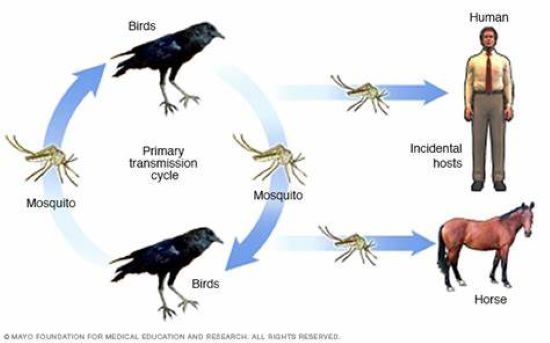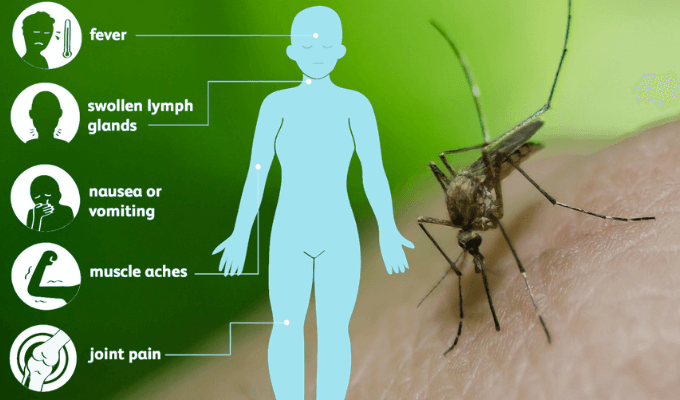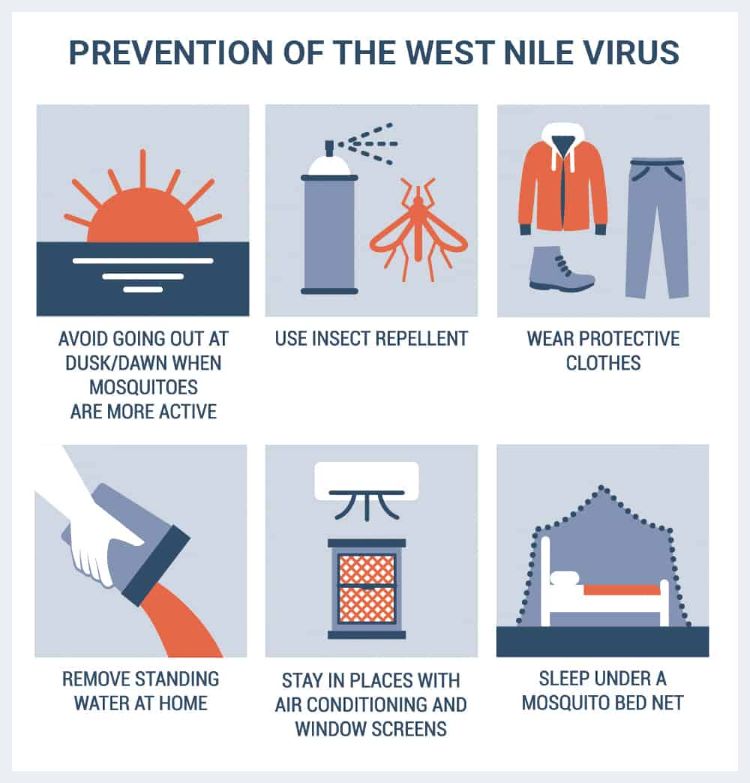Protect Yourself Against West Nile Virus
Southwest Nebraska Public Health Department reminds you to protect yourself against West Nile Virus (WNV) by taking steps to prevent mosquito bites. Over 50 cases of WNV have been reported in southwest Nebraska since 2012, and Nebraska continues to have one of the highest rates of West Nile in the nation.

There is no specific treatment for WNV and no vaccine for humans. It spreads when a mosquito carrying the virus bites a person, horse, or other animal. This means the best protection from West Nile Virus is to prevent mosquito bites.

Most people infected with WNV do not develop any symptoms. Of those who do, the most common symptoms are fever, body aches, and fatigue that can last for weeks or months. Less often, people develop severe illness such as swelling in the brain or spinal cord leading to weakness, paralysis, or death.

The following tips can be used to help prevent the spread of WNV:
- Use insect repellent with recommended active ingredients.
- Wear long sleeves and long pants if you will be out during dawn and dusk.
- Check your property for standing water and remove or drain it.
- Use mosquito dunks in standing water that cannot be drained, such as birdbaths, ponds, troughs, or other water sources. These products are safe for animals, birds, fish, and people.
- Vaccinate horses in the spring for WNV.
- Keep horses in barns during dawn and dusk when mosquitoes are most active.
- Avoid turning on lights in the barn and use incandescent bulbs around the perimeter of the stable.

SWNPHD traps mosquitoes and sends them in for testing throughout the summer to detect any possible WNV in the health district. The public will be notified of any mosquito pools that test positive for West Nile, along with any positive cases in humans or horses. Horse owners should contact their veterinarian for additional information on WNV.
